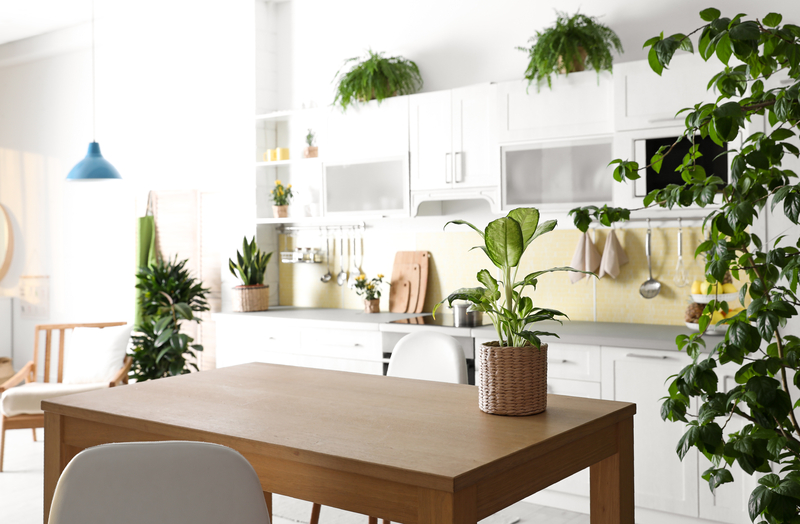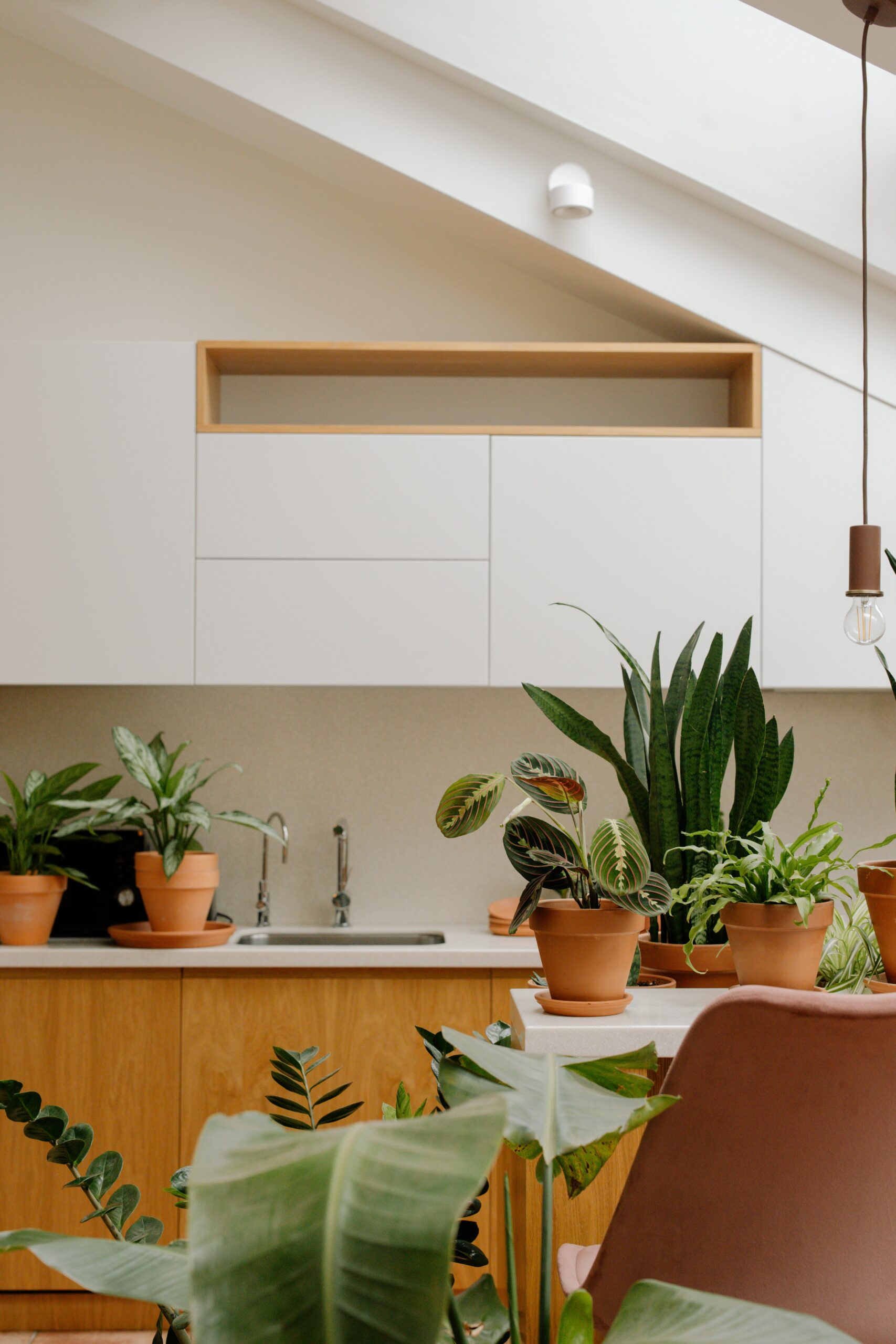
If you have a green thumb, growing plants in the kitchen is certainly something you want to do.
Despite adding a decorative touch to the otherwise dull space, they will purify the air and neutralize unpleasant odors.
On the other hand, you can have fresh herbs ready within arm’s reach. Growing plants in the kitchen can be simple, even if you don’t have previous experience.
We share everything you need to know about plants in the kitchen in this post. Make sure to go through it and check our valuable tips and ideas!
Plants In Kitchen:
Planting herbs in the kitchen
Growing plants in the kitchen isn’t complicated. To allow proper growth, you need to provide a spot with a temperature from 55 to 75 degrees. Also, they will need good air circulation and sunlight. Make sure to use a pot with drainage holes so that the excess moisture will drip out without rooting the roots. With so many herb plants that thrive in indoor conditions, you can make a choice that matches your taste.
Plants in the kitchen feng shui
According to Feng Shui, plants bring energy to space. Any living being, such as fresh flowers, fruits, or potted plants, will bring prosperity to the home. Therefore, house plants will bring energy to your kitchen. According to Feng Shui, it would be best to go for plants that support the kitchen’s functionality, such as herbs or ones that attract wealth and good health. Keep plants close to the stove and near the dining area if possible.
Plants in the kitchen ideas
Plants will add a decorative touch to your kitchen despite serving their purpose. From creating a mini windowsill garden to utilizing the vertical space, there are many options to consider.
Vertical mason jar garden
Even if you don’t have much space available, you can still manage to fit a tiny garden. Install hooks on your cupboards and make your mini mason jar garden.
Use the space above the cupboards
Don’t let the space above the cupboards remain empty. You can add vining plants to enhance your kitchen aesthetic and add liveliness.
Small windowsill garden
Herbs love sunlight, so creating a small garden on your window sill is excellent. Add stylish pots that match your kitchen color scheme and enjoy the fresh herb scent.
Plants to grow in the kitchen
You can grow a wide variety of plants in the kitchen. Remember that the herbs won’t reach their full potential like they would achieve when grown outdoors. However, you will always have fresh herbs at your fingertips to flavor your dishes.
- Basil is a flavorful herb, available in different varieties. Some of the most common household growing are Lemon and Genovese.
- Mint will spread a pleasant smell in your kitchen. Make sure to give it an individual since it tends to grow quickly and can overwhelm other plants.
- Chives is an aromatic herb that has an onion flavor. When harvesting, cut it close to the soil to promote growth.
- Bay is a perfect plant if you have plenty of space. It will grow into a small bush and can be easily shaped into a topiary.
- Parsley will grow for a few months if you harvest it properly.
- Cilantro is easy to plant directly from seed. When harvested, it won’t regrow, so make sure to have it constantly growing for an uninterrupted supply.
- Marjoram is a flavorful herb that brings the Mediterranean to your table.
- Oregano will provide you with fresh herbs for two years.
Where to put plants in the kitchen
Receiving enough light is crucial for growing herbs. Choose a location that provides access to sunlight. It would be best to provide the herbs sun for at least six hours a day from south or west-facing window. The spot needs to provide excellent airflow and slightly increased moisture levels. However, always make sure to consider the needs of your specific plant. For example, thyme, parsley, and mint require less sunlight and can thrive in west-facing windows. If your kitchen doesn’t receive enough natural light, you can grow lights. They will mimic the sunlight but will need more prolonged exposure of about 14 to 16 hours per day since artificial light isn’t as intense as natural.
Hanging plants in the kitchen
Yes, you can hang the plants in your kitchen, as long as they receive plenty of natural sunlight. With so many methods to hang your plants, you always find the one that works for your kitchen. If you prefer no drilling methods, you can hang the planters using a tension rod, adhesive hooks, ceiling hooks, suction hooks, or magnetic hooks to attach them to appliances.
Growing plants in the kitchen
With so many plants that thrive in the kitchen, you can always create your mini garden. Herbs are always a go-to choice, but be sure to pick those that match your kitchen’s conditions. Lemon balm and mint can thrive in any conditions. Sage and marjoram are other popular choices for your kitchen garden. If you prefer vibrant blooms, you can go for begonias and Chrysanthemums. Orchids have a bad reputation for being high-maintenance plants, but they will do fine in the kitchen. Position them away from direct sunlight, if possible, near the sink as they love humidity.
Plants that neutralize scents that are in the kitchen
The process of cooking releases unpleasant odors in the kitchen. To neutralize the strong scents, you can plant aromatic plants such as mint and basil. Their pleasant aroma will spread around the space, neutralizing strong odors.
Many house plants are known for their air-purifying abilities. If you want to enhance your kitchen with clean-air plants, you can go for Peace Lily, English Ivy, Boston Fern, Snake Plant, Golden Pothos, Spider Plant, and many other green babies. Despite turning carbon dioxide into oxygen, some of these plants have the ability to absorb commonly found toxins in cleaning products.
